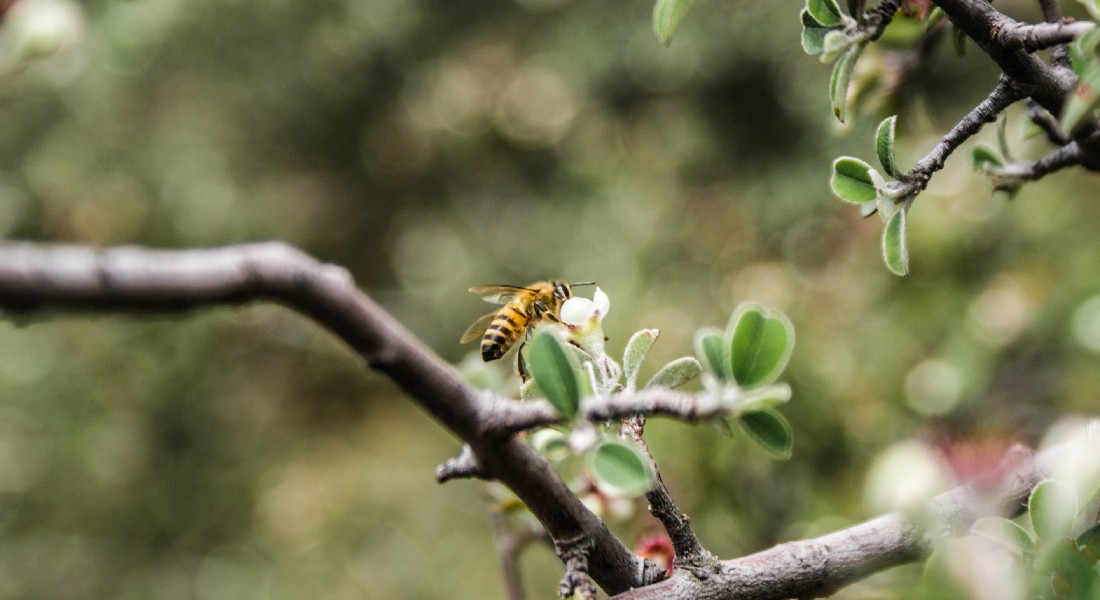This new tool helps monitor how environmental changes impact our food crops
75 percent of the world’s main commercial crops are fully or partially dependent on pollination by animals. But so far, the effect of climate and landscape changes on pollination has been unknown. A new global database is about to change that.

No less than 75 percent of the world’s main food crops are to some extent dependent on pollination by animals like bees, flies and butterflies. Even though several scientific studies have pointed out the importance of synergy between wild animals and crop pollination, no global overview has been available so far.
For the first time in history, the new database 'CropPol' enables an international team of more than 100 researchers to chart the dependence of 48 of our main commercial crops on wild pollinators across 32 countries and across three decades.
Based on the database, the researchers are able to help our understanding of the interaction between wild pollinators and crops. It may stress the importance of the loss of pollinators in various parts of the world and to specific crops, since we are currently seeing a decline in pollinators as biodiversity is under pressure due to climate and landscape changes.
In Denmark, two research groups from the University of Copenhagen and Aarhus University have cooperated closely to contribute to the new database.
“Three-fourths of the world’s commercial crops are to a greater or less extent dependent on animal pollinators for seeds and fructification. Even though we are able to grow crops like rice, maize and wheat, which do not depend on pollination, I think we all want to be met by a wide choice of foods when we go to the supermarket. But need more knowledge, and throughout the world people are interested in understanding how global changes affect this critical ecosystem service,” explains Associate Professor Bo Dalsgaard, contributing researchers, from the Center for Macroecology, Evolution and Climate at the GLOBE Institute, University of Copenhagen.
But as standardised data on crop pollination are difficult to come by, chances of spotting global tendencies and challenges have been limited.
“CropPol will change that, and we are about to make exciting new discoveries based on this new ability to determine how climate and landscape changes disturb the interaction between plants and animals. Here in Denmark, we are extremely pleased to be able to contribute to the new database,” says Bo Dalsgaard.
Connection between pollination and seeding-fructification
The database’s global functionality and the fact that it is publicly available makes it innovative and possibly vital to answering a series of scientific questions in the long run, explains Senior Researcher Yoko Luise Dupont from the Social-Ecological Systems Simulations Centre at the Department of Ecoscience, Aarhus University.
“The purpose of the database is to compare data from all over the world that has been published in scientific studies. CropPol gives researchers from all over the world a unique chance to explore connections between pollination and seeding/fructification, that is both general global tendencies and in connection with specific crops. This way, we are able to develop sustainable solutions as part of the green transition,” says Yoko Luise Dupont.
“This research is important, because climate changes and the way we use the land affect both nature and agriculture. CropPol also facilitates research collaboration across countries and continents, making it a strong tool for addressing global issues like food security and loss of biodiversity,” says Yoko Luise Dupont.
CropPol is based on a compilation of data and findings from all kinds of research, and the ambition is to make the database dynamic and to continuously expand it with new knowledge and more data points. This gigantic knowledge base will be available to everyone – with or without research training.
Read more about the international project on the following website: https://www.beeproject.science/croppollination.html
Contact
Associate Professor Bo Dalsgaard
bo.dalsgaard@sund.ku.dk
+45 35 32 12 74
